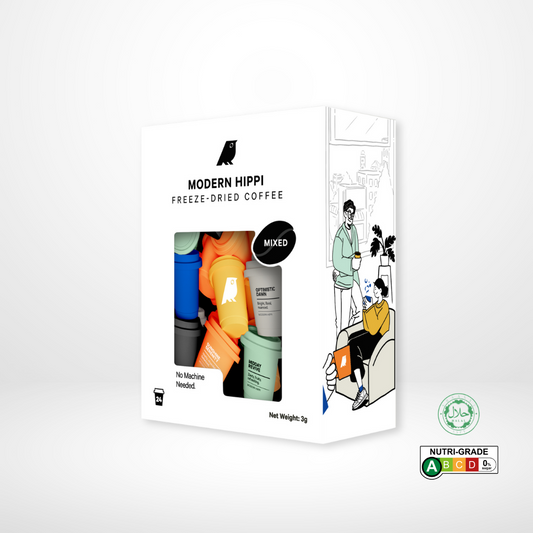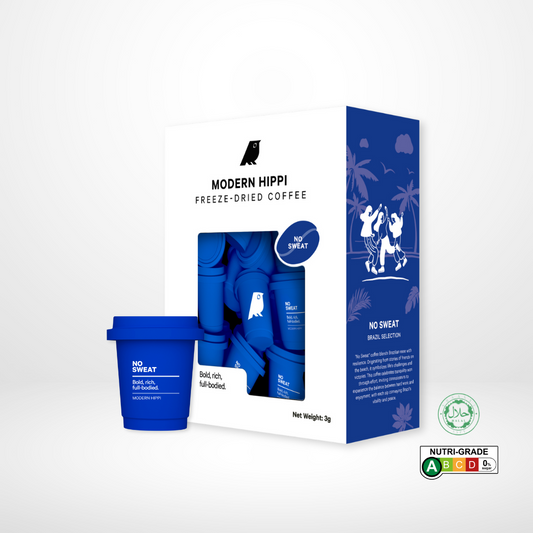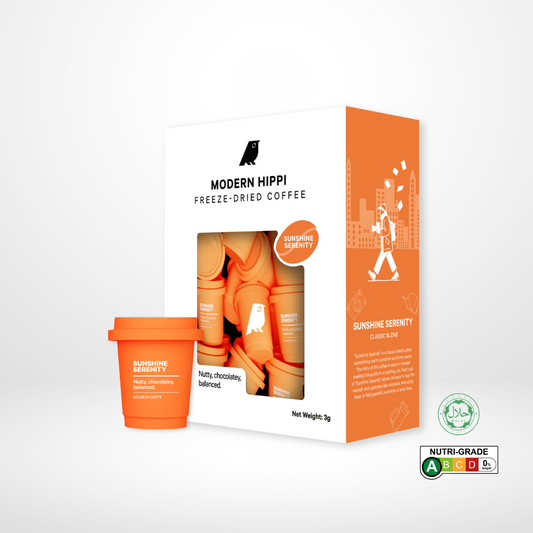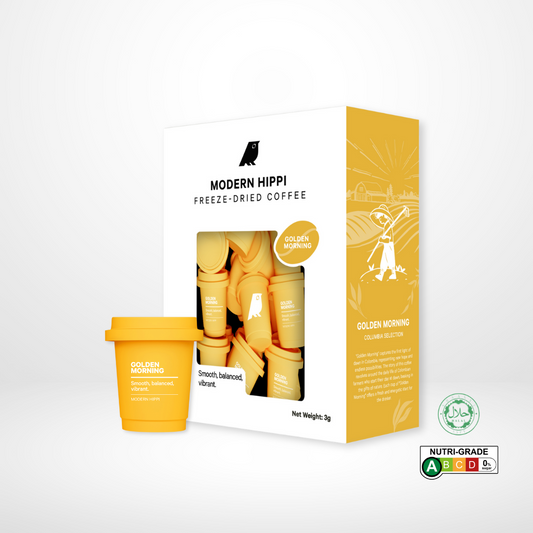Ageing is inevitable—but the rate at which we age is a different story. While genetics play a role, lifestyle choices have a profound impact on how quickly we feel and look older. Among these choices, what we consume daily has emerged as a major contributor. One such consumable? Coffee.
Often viewed simply as a morning pick-me-up or an afternoon energy booster, coffee is undergoing a rebranding—backed by science. Researchers are increasingly exploring coffee’s potential as a longevity-enhancing beverage, largely due to its high antioxidant content. But does coffee really help slow down the ageing process? And if so, how?
Let’s dive into the latest science, explore how antioxidants in coffee interact with the ageing process, and uncover the kind of coffee that offers maximum benefits for body, brain, and skin.
1. Understanding the Aging Process
Aging is the gradual decline of physiological functions, typically characterized by cellular damage, oxidative stress, inflammation, and mitochondrial decline. Over time, these processes lead to wrinkles, loss of muscle mass, cognitive decline, and reduced organ efficiency.
At the molecular level, one of the biggest culprits in ageing is oxidative stress—an imbalance between free radicals and antioxidants in your body. Free radicals are unstable molecules that damage cells, proteins, and DNA. This damage accumulates over time, contributing to degenerative diseases and visible signs of ageing.
The Role of Antioxidants
Antioxidants are compounds that neutralise free radicals, preventing them from causing cellular damage. Foods and drinks rich in antioxidants are believed to slow the ageing process, reduce inflammation, and protect against chronic conditions like cancer, cardiovascular disease, and neurodegenerative disorders.
2. Coffee: A Potent Antioxidant Powerhouse
According to a comprehensive analysis published in the Journal of Nutrition, coffee is one of the largest sources of antioxidants in the modern diet. In fact, for many individuals, it contributes more antioxidants than fruits and vegetables combined.
Key Antioxidants Found in Coffee
-
Chlorogenic Acid – The most abundant antioxidant in coffee, known for its anti-inflammatory and anti-aging properties.
-
Melanoidins – Compounds formed during the roasting process that possess antimicrobial and antioxidant functions.
-
Cafestol and Kahweol – Lipid compounds found in unfiltered coffee that exhibit anti-cancer and anti-inflammatory effects.
These compounds don’t just float in your cup—they get absorbed into your bloodstream and interact with your body’s metabolic systems, providing protection at the cellular level.
3. Scientific Evidence Linking Coffee to Anti-Aging
A growing body of research is supporting the claim that coffee consumption is associated with slower biological aging and increased longevity.
A. Longevity and Mortality Rates
A 2018 study published in JAMA Internal Medicine, which involved over 500,000 participants in the UK Biobank, found that those who drank up to 8 cups of coffee per day had a significantly lower risk of early death, regardless of caffeine content.
Another study from the New England Journal of Medicine (2012) observed that coffee drinkers had a 10% to 15% reduction in mortality risk, particularly from cardiovascular disease, stroke, and neurological conditions.
B. Neuroprotection and Cognitive Health
Neurodegenerative diseases like Alzheimer’s and Parkinson’s are among the most feared consequences of aging. Research shows that coffee consumption may help lower the risk:
-
A Meta-analysis in the Journal of Alzheimer’s Disease (2020) concluded that habitual coffee drinkers had a 27% lower risk of developing Alzheimer’s disease.
-
Regular intake of coffee has also been associated with a 32% reduced risk of Parkinson’s disease, as per findings from the Harvard School of Public Health.
C. Skin Aging and Photoaging
Skin is one of the most visible markers of aging. Ultraviolet (UV) radiation leads to photoaging, causing wrinkles, loss of elasticity, and uneven pigmentation. Antioxidants in coffee have shown protective effects on skin cells by:
-
Reducing collagen degradation.
-
Minimizing UV-induced DNA damage.
-
Enhancing skin barrier function.
A study in the journal Skin Pharmacology and Physiology demonstrated that coffee-derived polyphenols helped prevent oxidative damage in skin cells exposed to UV rays.
4. Comparing Coffee to Other Antioxidant-Rich Foods
When it comes to antioxidants, coffee often beats foods typically praised for their health benefits.
|
Food/Drink |
Total Antioxidant Capacity (per 100g) |
|
Coffee (brewed) |
200–550 mg |
|
Blueberries |
90–100 mg |
|
Green Tea |
60–125 mg |
|
Red Wine |
70–120 mg |
|
Dark Chocolate |
150–300 mg |
(Source: USDA Database for the Oxygen Radical Absorbance Capacity of Selected Foods)
While blueberries and dark chocolate are great additions to your diet, coffee offers a far more practical and frequent source of antioxidants—especially since it’s often consumed multiple times daily.
5. More Than Just Antioxidants: Coffee’s Other Age-Defying Benefits
Though antioxidants are the main players, coffee’s benefits extend beyond its free radical-fighting powers.
A. Boosts Metabolic Rate
As we age, our metabolism naturally slows. Coffee, particularly its caffeine content, has been shown to temporarily increase metabolic rate by 3–11%, according to a study in the American Journal of Clinical Nutrition.
B. Supports Liver Health
Aging often impairs liver function. Research published in Hepatology found that individuals who consumed coffee regularly had a 70% reduced risk of liver fibrosis and lower incidences of liver cancer.
C. Improves Mood and Reduces Depression
Depression and mood disorders become more common with age. Coffee, acting on neurotransmitters like dopamine and serotonin, has been linked to lower rates of depression. A Harvard study found that women who drank 4 or more cups per day had a 20% lower risk of depression.
6. Caveats: Not All Coffee Is Created Equal
While coffee offers impressive benefits, not every cup delivers the same level of protection. Here are a few factors to consider:
-
Roast Level: Medium roast generally retains the highest amount of antioxidants.
-
Processing: Instant coffees and low-grade blends often contain additives and lower-quality beans.
-
Additives: Adding sugar and processed creamers can negate many of the health benefits.
-
Brew Method: Paper filters can help remove diterpenes (cholesterol-raising compounds) while preserving beneficial antioxidants.
7. A Better Brew: The Freeze-Dried Specialty Coffee Advantage
While freshly brewed coffee has traditionally been the gold standard, innovations in freeze-dried specialty coffee are changing the game. Today’s premium freeze-dried coffees offer both efficiency and integrity, preserving the very compounds that make coffee such a powerful ally against aging.
How Freeze-Dried Coffee Preserves Antioxidants
Unlike traditional instant coffee, freeze-dried specialty coffee is produced using sub-zero dehydration, which removes moisture without using high heat. This gentle method:
-
Retains antioxidant compounds like chlorogenic acid and melanoidins.
-
Preserves flavor complexity and aroma.
-
Eliminates the need for preservatives or artificial stabilizers.
Sustainable and Convenient
Many freeze-dried specialty coffee producers also source from ethically grown, single-origin beans, ensuring transparency, sustainability, and quality. It's a way to enjoy the benefits of high-quality coffee without brewing equipment, extensive prep, or environmental compromise.
Ideal for Modern Lifestyles
For busy professionals, travellers, or health-conscious consumers, freeze-dried speciality coffee delivers unmatched convenience while retaining all the anti-ageing, health-boosting properties of traditionally brewed speciality beans.
Conclusion: Sip Smarter, Age Slower
The question isn't whether coffee can slow aging—it’s what kind of coffee you’re drinking. As science continues to uncover the incredible health potential of coffee’s antioxidant compounds, it’s clear that this everyday beverage is far more than just a caffeine fix.
From protecting your brain to preserving your skin, coffee stands as a quiet yet powerful tool in the quest for a longer, healthier life. And with modern freeze-dried specialty coffee offering a convenient, nutrient-rich alternative, the future of coffee—and healthy aging—has never looked brighter.
So go ahead—drink up. Because every smart sip is an investment in your future self.
For more information about speciality freeze-dried coffee, visit Modern Hippi at modernhippi.co







